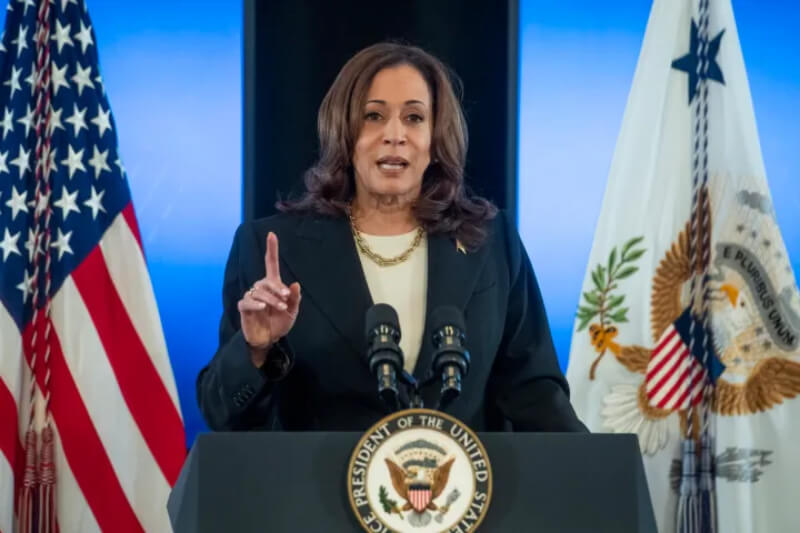- Kamala Harris, now Democratic nominee, is expected to be more open to AI and Bitcoin, says Mark Cuban.
- Trump’s campaign focuses on Bitcoin, promising tax cuts and potential inflationary impacts on the dollar.
- Harris emphasizes AI fairness and safety, aiming to balance innovation with protection for affected individuals.
Kamala Harris, the current Vice President, has become the Democratic Party’s nominee for the upcoming presidential elections in November, following Joe Biden’s withdrawal on July 21. Biden stepped down after facing mounting pressure from within his party.
Harris will now face Donald Trump, the former U.S. president and the Republican nominee. Notably, Trump has rebranded himself as the “crypto president,” making Bitcoin a central theme of his campaign aimed at millions of American cryptocurrency owners.
Mark Cuban, entrepreneur and star of “Shark Tank,” has voiced his expectations that Harris will be more accommodating to business interests, particularly in artificial intelligence and cryptocurrency sectors.
According to a Politico report, Cuban has received feedback indicating Harris’ openness to these areas, though he clarified that this information is not confirmed by Harris herself. He emphasized that Harris’ potential policy shifts could signal her pro-business stance.
Cuban has also expressed optimism about Trump’s potential impact on the Bitcoin market. He suggested that Trump’s proposed tax cuts could inflate the dollar’s value, subsequently driving up Bitcoin prices. Cuban pointed out that Trump’s unpredictable geopolitical moves could further weaken the dollar against Bitcoin. He noted that such conditions could accelerate Bitcoin’s price increase.
The issue of artificial intelligence has become increasingly significant, especially in the context of U.S.-China tensions over national security. Harris has played a key role in addressing AI safety and fairness, having contributed to Biden’s executive order mandating federal agencies to use AI responsibly. Cody Venzke, senior policy counsel for the American Civil Liberties Union, highlighted Harris’ focus on addressing the everyday harms of AI rather than just its existential risks.
The broader implications of Harris’ approach to AI policy reflect concerns over national security and the ethical use of technology. Harris’ emphasis on fair and safe AI practices aims to balance innovation with protection for individuals affected by AI technologies. This nuanced approach could influence the future regulatory landscape for AI in the U.S.
Both Harris and Trump present distinct visions for the future of AI and cryptocurrency in America. Cuban’s insights suggest that Harris might foster a more business-friendly environment, potentially benefiting the AI and crypto sectors, while Trump’s policies could have significant ramifications for the Bitcoin market.






